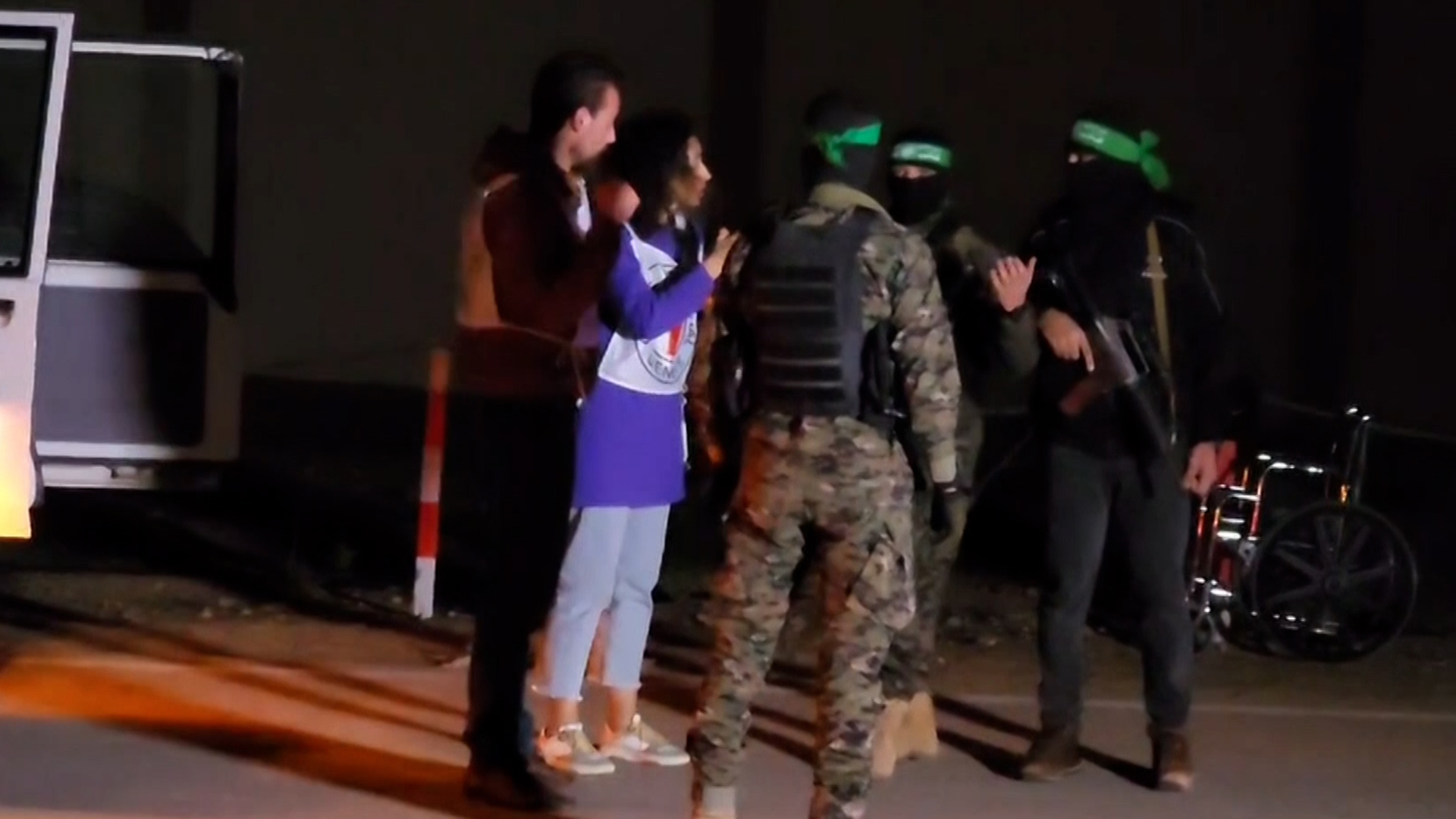Hamas exchanged a number of prisoners with the occupation during the previous truce late last November (Al Jazeera)
Palestinian President Mahmoud Abbas called on the Islamic Resistance Movement (Hamas) to expedite the completion of the prisoner exchange deal with Israel, while Western reports indicated that the discussions that took place regarding the deal in Cairo yesterday, Tuesday, did not achieve tangible progress, but they may continue.
Abbas said, "We call on the Hamas movement to quickly complete the prisoner deal to spare our Palestinian people the scourge of another catastrophe with ominous consequences, no less dangerous than the Nakba of 1948, and to avoid the occupation attack on the city of Rafah, which will lead to thousands of victims, suffering and displacement for our people." According to statements reported by the Palestinian News Agency (Wafa).
Abbas also called on "the American administration and the Arab brothers to work seriously to complete the prisoner deal as quickly as possible, in order to spare the Palestinian people the scourge of this devastating war."
Since the start of the Israeli war on Gaza last October, Washington has repeatedly expressed its aspiration to enable the Palestinian Authority to play a major role in managing the Strip after the end of the war.
US Secretary of State Anthony Blinken said last January that he discussed with Abbas "the importance of reforming the Palestinian Authority, its policies, and its governance so that it can effectively assume its responsibility in Gaza."
Abbas (right) received US Secretary of State Blinken in Ramallah a week ago (French)
On the other hand, the Axios news website quoted an Israeli source as saying that the Cairo talks regarding a prisoner exchange deal between Hamas and Israel ended without achieving tangible progress.
The source said that the main gap is the "large number" of prisoners that Hamas demands to be released for every Israeli detainee.
The discussions were held in Cairo yesterday, Tuesday, to discuss the truce in the Gaza Strip and the exchange of prisoners, with the participation of CIA Director William Burns, Mossad Chief David Barnea, Qatari Prime Minister and Foreign Minister Mohammed bin Abdul Rahman Al Thani, and Egyptian officials.
Israeli media said on Tuesday evening that the Israeli delegation would leave Cairo without achieving progress, pointing to disagreements that preceded the delegation’s departure to the Egyptian capital, between Prime Minister Benjamin Netanyahu and the security officials in charge of negotiating.
However, the American New York Times quoted informed officials as saying that lower-ranking Israeli officials will continue the talks after the delegation leaves.
Netanyahu's priorities
Meanwhile, Amos Harel, a military analyst for the Israeli newspaper Haaretz, believed that reaching a deal to return the Israeli prisoners detained in Gaza was not a priority for Netanyahu, despite the demonstrations of their families and their demands to complete the deal.
Harel said that the Mossad chief had obtained government approval at the last minute to go to Cairo, "but the mandate granted to the Israeli delegation is very narrow, and Israel described the conditions of Hamas - which is not a direct party in the talks - as unacceptable."
The Israeli analyst believed that Netanyahu is taking "a publicly aggressive stance. He does not intend to surrender to Hamas' demands. Israel will continue to use force to try to rescue the hostages. Military pressure will continue on Hamas in Khan Yunis, and the army is preparing to invade Rafah."
Harel said that talk of an imminent attack on Rafah appears to be aimed at putting pressure on Arab countries in the hope that they will be able to persuade Hamas to begin searching for a way to end the war, as he put it.
A leadership source in the Hamas movement told Al Jazeera yesterday, Tuesday, that there is currently no delegation from the movement in Cairo, and that the movement is still awaiting the results of the Cairo meetings, and communications are continuing with the mediators.
While the United States talks about efforts to reach a truce for at least 6 weeks between Hamas and Israel, sources indicate that there is a disagreement regarding the duration and nature of the potential truce and the number of prisoners to be exchanged.
The Qatari-Egyptian mediation led to a truce between Hamas and Israel for a week in late November, during which prisoners were exchanged and limited aid was brought into Gaza.
Source: Al Jazeera + agencies + Israeli press

